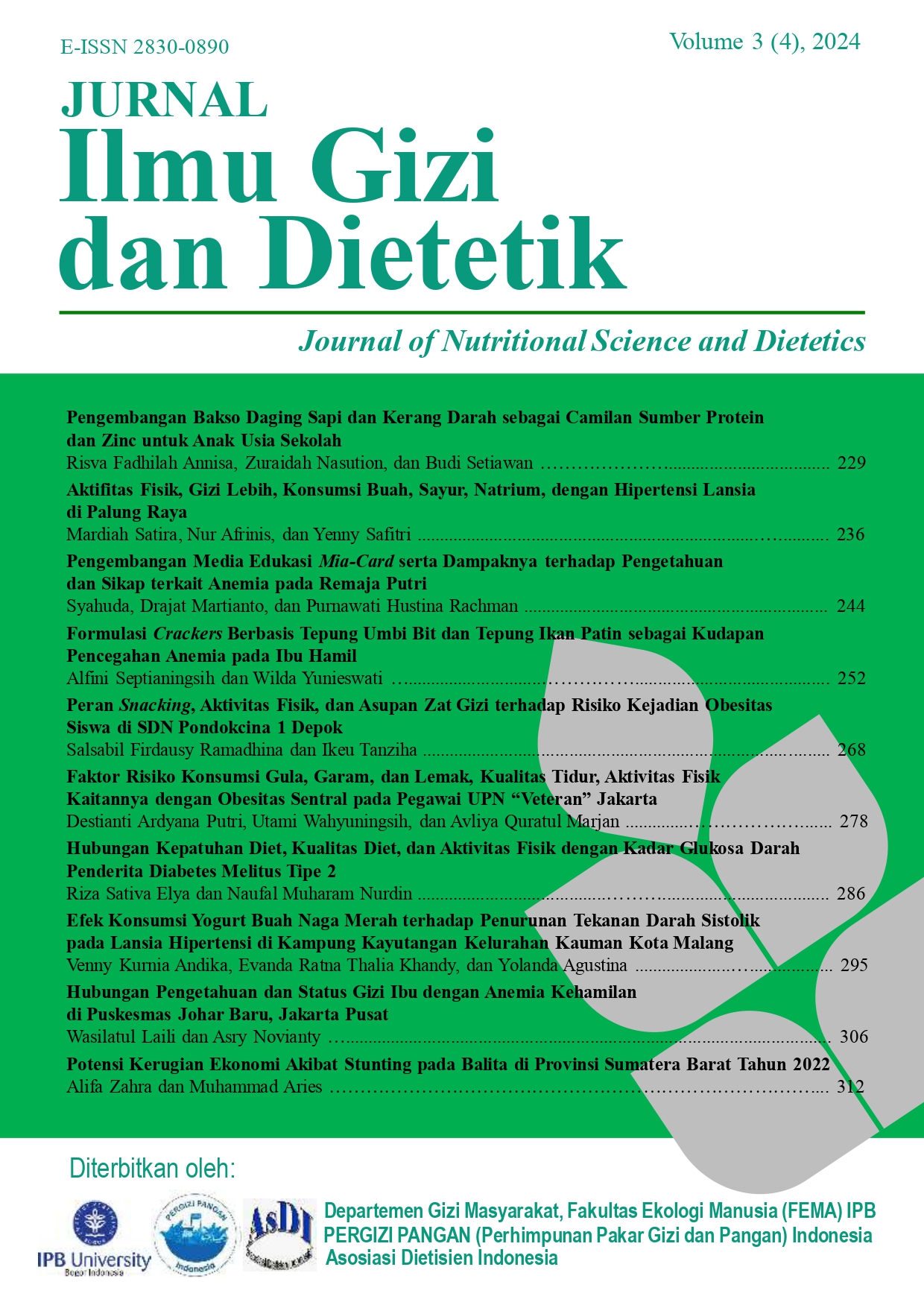Peran Snacking, Aktivitas Fisik, dan Asupan Zat Gizi terhadap Risiko Kejadian Obesitas Siswa di SDN Pondokcina 1 Depok The Role of Snacking, Physical Activity, and Nutrition Intake in the Risk of Obesity among Students at SDN Pondokcina 1 Depok
Abstract
The objective of this study was to analyse the differences and effects between subject and family socioeconomic characteristics, snacking habits, snack selection, physical activity, and fibre intake in students at SDN Pondokcina 1 Depok between obese and normal nutritional status. This study employed a cross-sectional study design with a total of 60 children. The data on snacking habits were measured using the semi-quantitative food frequency questionnaire, snack preferences using the food choices questionnaire, and physical activity and food intake using 2x24 hour recall. The results demonstrated significant differences in the median values of snacking frequency, types of snacks, weekday physical activity, nutrition adequacy levels of energy, protein, fat, and carbohydrates, as well as the median values of fibre intake between normal and obese subjects (p<0.05). No significant differences were observed in the types of beverage and one dish meal, snacking frequency categories, snack preference factors, and fibre adequacy levels (p>0.05). The factor that influenced the occurrence of obesity was the level of carbohydrate adequacy (OR=6.14). Excessive carbohydrate adequacy level can lead to obesity. The next research is recommended to use a case-control study design and subject matching to strengthen the relationship between the influencing factors and the occurence of obesity.

